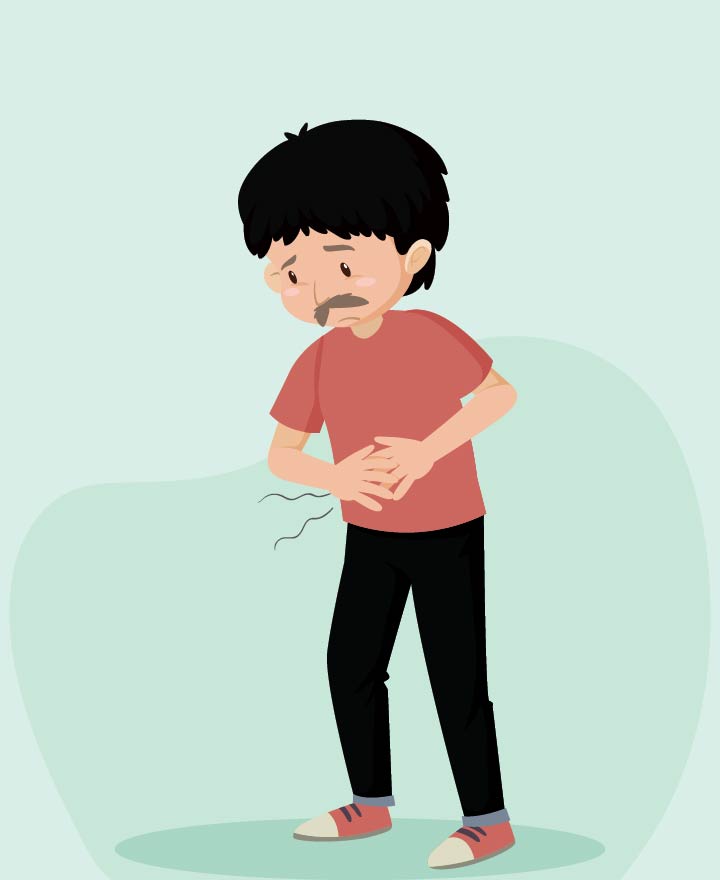

The Most Common Digestive Disorders Diseases
From the daily discomfort of lactose intolerance to the potentially life-altering severity of Crohn's disease and ulcerative colitis, millions around the world suffer from digestive problems. From mild discomfort to chronic, life-altering conditions, digestive disorders can affect anyone, often stemming from diet, stress, or even genetic factors. Here, we will learn about basics of how digestion works, common digestive disorders, how they manifest, and what you can do to manage or prevent them.
How Digestion Works: Basic Principles
The digestive process begins the moment food enters the mouth. Enzymes in saliva break down carbohydrates, and as food moves through the oesophagus, stomach, and intestines, additional enzymes and acids contribute to digestion. In the stomach, proteins are broken down by gastric acids, while bile from the liver and enzymes from the pancreas assist in breaking down fats and digesting proteins and carbohydrates.
Our intestines absorb nutrients — the small intestine absorbs most nutrients, while the large intestine reabsorbs water and electrolytes, ensuring waste is compacted before being excreted. The health of our digestive system is dependent on the balance created by acids, enzymes, bile, and gut bacteria.
Common Digestive Disorders
A few major disorders that may cause problems digesting food are—
1. Gastroesophageal Reflux Disease (GERD):
GERD occurs when stomach acid frequently flows back into the oesophagus, irritating its lining. Heartburn, regurgitation, and difficulty swallowing are some GERD symptoms. Left untreated, GERD can lead to esophagitis, Barrett's oesophagus, and even oesophageal cancer. Changes in lifestyle (such as cutting down on fatty food intake, quitting smoking, and weight management) can help manage the problems associated with GERD.
2. Irritable Bowel Syndrome (IBS):
IBS is a functional disorder and one of the most common digestive system diseases characterised by symptoms like bloating, abdominal pain, diarrhoea, and constipation. While the exact cause is unknown, stress, diet, and gut sensitivity are believed to play a role. IBS is typically managed through dietary modifications, stress reduction techniques, and sometimes medications like antispasmodics or fibre supplements.
3. Celiac Disease:
In celiac disease, an autoimmune reaction to gluten (one of the proteins of wheat, barley, and rye) creates a type of inflammation in the small intestine that severely impairs its ability to absorb nutrients. Nutrient deficiencies commonly occurring because of impaired absorption are free concentrated water, simple sugars, fatty acids, monoglycerides, glycerol, sodium, potassium, chloride, calcium, iron, magnesium, zinc, copper, and some vitamins, especially thiamine, riboflavin, nicotinic acid, folate, and vitamin B12. Diarrhoea, weakness, and considerable weight loss are some symptoms of this disease. The only known effective treatment is to stay on a gluten-free diet throughout life.
4. Crohn's Disease:
This chronic inflammatory bowel disease may affect any part of the gastrointestinal tract, though it most commonly affects the small intestine. Symptoms include severe diarrhoea, abdominal pain, fatigue, and malnutrition. There is no cure, but medication to reduce inflammation, immune system suppressors, and sometimes surgery allow the management of Crohn's disease.
5. Ulcerative Colitis:
Another form of IBD, ulcerative colitis affects the colon and rectum, causing ulcers in the lining of the large intestine. Abdominal pain, bloody diarrhoea, and urgent bowel movements are some symptoms of this disease. Treatment often involves anti-inflammatory drugs, immunosuppressants, or biologics. In severe cases, surgery to remove the colon may be required.
6. Diverticulitis:
This ailment occurs when small pouches (diverticula) that form in the walls of the colon become inflamed or infected. Abdominal pain, fever, nausea, and a change in bowel habits are some symptoms of this disease. Mild cases are treated with rest, diet modifications, and antibiotics, while severe cases may require surgery to remove the affected portion of the colon.
7. Gallstones:
These are hardened deposits of bile that can form in the gallbladder. These stones block the bile ducts, leading to inflammation and pain in the upper right abdomen. Some people may require surgery to remove the gallbladder (cholecystectomy), while others may be able to manage gallstones with medication or dietary changes.
8. Lactose Intolerance:
This occurs when the body lacks the enzyme lactase, which is needed to digest lactose, a sugar found in dairy products. Bloating, diarrhoea, and gas after consuming dairy are some symptoms of lactose intolerance. While lactose intolerance cannot be cured, symptoms can be managed by reducing or eliminating dairy intake or taking lactase supplements.
Conclusion
The digestive system is quite elaborate, and its proper functioning ensures good health. Understanding about digestive disorders enables individuals to take positive steps in minimising symptoms and improving quality of life.
One of the important components of our overall wellness is also being financially secured. Healthcare emergencies can happen any time, but a good health insurance policy can protect you from such uncertain situations. To know more about Wellness and other health related tips, visit the wellness corner.
Source: crohnscolitisfoundation, iffgd.org, mayoclinic
Disclaimer: This blog provides general information and discussions about health and related subjects. The information and other content provided in this blog, website or in any linked materials are not intended and should not be considered, or used as a substitute for, medical advice, diagnosis or treatment. Kindly contact your Doctor before starting a new medicine or health regime.
Related Articles
Diarrhoea: Symptoms, Treatment, and Prevention
Purging Disorder: Symptoms, Side Effects, and Treatment
Crohn’s Disease: Causes, Symptoms, and Treatment
The Difference Between Food Allergy And Food Intolerance
Understanding Gallstone Disease
Published on November 29, 2024


 Health Insurance
Health Insurance  Travel Insurance
Travel Insurance  Car Insurance
Car Insurance  Cyber Insurance
Cyber Insurance  Critical Illness Insurance
Critical Illness Insurance
 Pet Insurance
Pet Insurance
 Bike/Two Wheeler Insurance
Bike/Two Wheeler Insurance  Home Insurance
Home Insurance  Third Party Vehicle Ins.
Third Party Vehicle Ins.  Tractor Insurance
Tractor Insurance  Goods Carrying Vehicle Ins.
Goods Carrying Vehicle Ins.  Passenger Carrying Vehicle Ins.
Passenger Carrying Vehicle Ins.  Compulsory Personal Accident Insurance
Compulsory Personal Accident Insurance  Travel Insurance
Travel Insurance  Rural
Rural